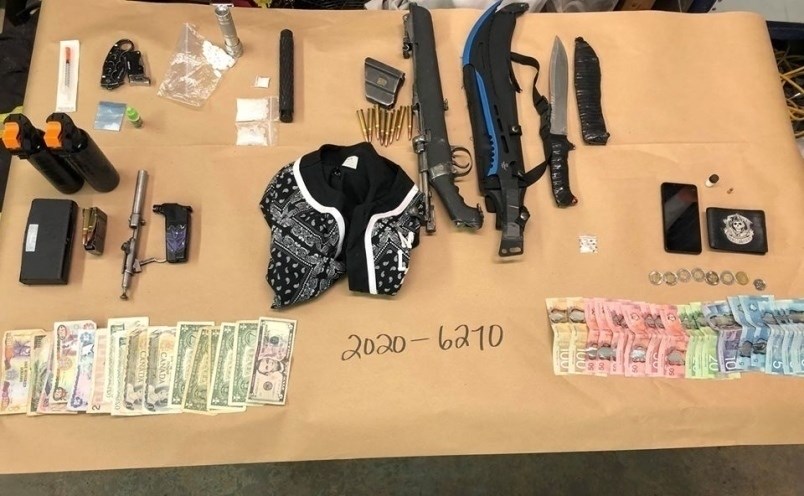When sentencing a Terror Squad gang member the judge considered Gladue factors including the fact that the accused lived on his own since age 11.
In Prince Albert Provincial Court on Feb. 19, Judge H. M. Harradence sentenced Kevin George Ackegan, 41, to 23 months in a provincial correctional facility on firearms-related charges.
“I see the weapons, I see the ammunition, I see the gang paraphernalia,” said Judge Harradence. “I looked carefully at the aggravating nature of his record and I appreciate that this is a dangerous situation that society must be protected.”
By law, the judge also considered Gladue factors when sentencing Ackegan. According to Canada’s Criminal Code, it is the duty of judges to clearly address an aboriginal offender’s circumstances, and the systemic and background factors that contributed to those circumstances.
“I have concluded that the offender’s actions on the day of his offences can be linked to his background,” said Judge Harradence.
“He comes from a broken home where his mother drank when he was very young. He experienced abuse and neglect from his aunt who raised him. And it appears he was living on his own at a very young age, as young as 11 years of age.
“He has a long standing drug abuse issue and in the Pre-Sentence Report he candidly admits to using crystal meth on the day of these offences and he also candidly admits, or acknowledges, he is still a member of a street gang, although he expresses a desire to remove himself from the Terror Squad,” added Judge Harradence.
“He says he had possession of these weapons as protection resulting from an incident when he was shot in the leg in 2019. He does say at his age he wants to conquer his addiction and provide for his family.”
During a sentencing hearing for Ackegan on Feb. 2, 2021, defence lawyer Dale Blenner-Hasset pointed out Gladue factors to consider when sentencing Ackegan. He said Ackegan’s family experienced significant negative effects from residential schools, which impacted his life.
Blenner-Hassett asked the court to sentence Ackegan to two years less a day in a provincial correctional centre. Crown Prosecutor Andreanne Dube asked the court for a five-year prison sentence in a federal penitentiary.
Guilty plea
Ackegan pleaded guilty in November 2020 to six weapons offences, including careless use of a firearm, possession of a weapon for a dangerous purpose, possession of prohibited or restricted firearm with ammunition, and three counts of possession of a weapon and ammunition contrary to an order.
Ackegan was arrested by Prince Albert RCMP Integrated Crime Reduction Team during a traffic stop on Feb. 26, 2020. When police searched the vehicle they found two firearms, ammunition, a machete, a knife, bear spray, hydromorphone, methamphetamine, and Gabapentin pills. They also found U.S., Jamaican and Canadian currency.
The court heard that the arresting police officer was working for the RCMP Integrated Crime Reduction Team that investigates gangs, guns and drugs when he got a call from a confidential informant saying Ackegan was in possession of guns. Ackegan was known to police and known to be a Terror Squad street gang member.
Surveillance was done at a residence on the 800 block of 14 Street West in Prince Albert. Ackegan was seen coming out of the residence and loading several bags into the back seat and trunk of a vehicle. A woman was driving the vehicle and Ackegan was the passenger. They drove a few blocks before stopping at another residence. At this point the officers made a traffic stop and arrested Ackegan. One of the officers drove the vehicle to the police station where it was searched and police found guns in the bags, ammunition, drugs, and a cell phone.
Restorative justice
The Gladue principles state that restorative justice may be more appropriate for Aboriginal offenders. Restorative justice focuses on healing those affected by the criminal act, including the offender, which is more in line with traditional Aboriginal justice. This restorative justice approach is also meant to act as a solution to reducing the over-representation of Aboriginals in Canadian jails.
When Ackegan is released after his two-year prison sentence, he will be placed on two years probation and Judge Harradence ordered that he complete 100 hours of community service within the first 12 months of the probation order.
“Mr. Ackegan this gives you an opportunity to prove yourself in the community and I hope you seize on this opportunity,” said Judge Harradence.




